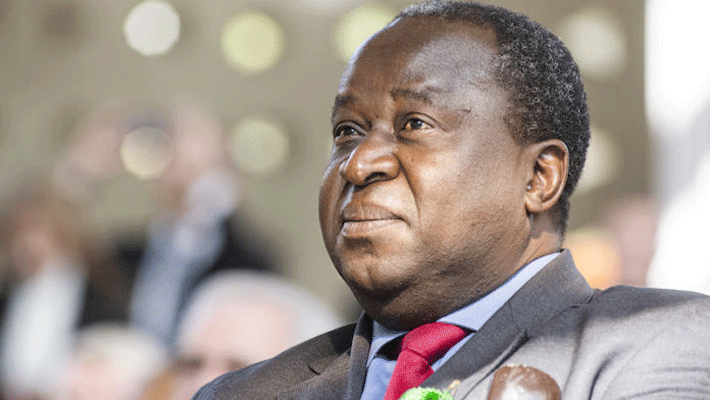
Johannesburg — Finance minister Tito Mboweni told the National Council of Provinces (NCOP) on Thursday afternoon that South Africa was staring a sovereign debt crisis “in the eyes” as soon as 2024 if the country’s spending and economic outlook did not change dramatically.
He was briefing a virtual meeting of the NCOP on the supplementary budget, which he is due to submit to Parliament this week on Wednesday.
Mboweni’s warning of an impending debt crisis comes on the back of credit rating agency Moody’s downgrading the country’s sovereign debt rating to junk, shortly after South Africa instituted a national lockdown aimed at curbing the spread of the coronavirus. The supplementary budget was first announced by Mboweni in May, two months into the lockdown, which was instituted when — in addition to the downgrade — the country had already fallen into a technical recession.
Saying the situation had “radically changed”, Mboweni told parliamentarians on Thursday that South Africa had to articulate its priorities and allocate funds according to revenue, adding that the country needed to stop borrowing to fill gaps and “live within our means”.
“If we don’t do this, by 2024, this country will be in a situation where the debt to GDP ratio will be higher than the GDP of the country. In simple technical economic terms, that means we are going to be in a sovereign debt crisis,” said Mboweni.
Mboweni said government would have to adjust expectations for the year as the country’s economic realities had shifted significantly since the February budget.
Run out of road “We can no longer spend the way we were spending before. We can no longer do things which we had hoped to do before. The situation has radically changed, and we need to begin considering the zero-based budget system,” Mboweni said.
Efficient Group economist Francois Stofberg said South Africa should see the supplementary budget as an opportunity to change counterproductive spending habits, because “transformation often happens in times of distress and external shock”.
- Chamisa under fire over US$120K donation
- Mavhunga puts DeMbare into Chibuku quarterfinals
- Pension funds bet on Cabora Bassa oilfields
- Councils defy govt fire tender directive
Keep Reading
Business Leadership SA CEO Busisiwe Mavuso said the South African government would have to consider drawing external investment to stimulate the economy. In terms of government’s own spending patterns, she said SA “has run out of road to kick the can any further”.
When Mboweni tabled his budget in February, the dominant theme was his plan to set wheels in motion to reduce the state’s wage bill by R160.2 billion over three years, as he said the budget came in an environment of low economic growth, a rising budget deficit and record-high unemployment.
Meanwhile, likening the effects of the Covid-19 pandemic to those of a war, President Cyril Ramaphosa has said that SA’s economic recovery must be “state-led”.
The president was replying to a question about what form SA’s economic recovery would take in the National Assembly via a virtual platform.
Economists have predicted that the economic shock of the pandemic will cause South Africa’s GDP to decline by between 5% and 10%, exacerbating South Africa’s already dire unemployment rate.
“I have often said we need to look at the post-Covid economic landscape as being equivalent to a post-war economic landscape,” said Ramaphosa.
“The state has to play a critical role. Even in your more conservative countries in the world are saying the state now needs to play its role.”
The president said that state had to “look at” how the market is functioning and structured, and whether “previous policies” still hold up or needed to be changed.
“That is precisely what we are now looking at in government.”
The main focus of the state’s economic support so far has been the announcement of R500 billion support package in mid-April. The package is meant to include about R95 billion in new lending from international finance institutions, which has not yet been received.
While short on details, Ramaphosa said the creation of jobs must now be the state’s key aim, and that jobs would be created by expanding public employment and upping investment in public infrastructure.
The presidency will next week bring to together funders, policy markets, state-owned enterprises, academics and member of the private sector to look at investment opportunities in infrastructure, he said.
“We should see infrastructure investment as a mobiliser of growth,’ he said. Infrastructure would make up a “significant part” of the stimulus SA’s economy needs, he added.
In response to a question about embattled state-owned airline SAA, Ramaphosa said that in “many countries around the world” the state needed to support public and private enterprises due to the economic shock of the coronavirus pandemic.
He added that government would be looking at the business rescue plan proposed by the airline’s business rescue practitioners “very closely”. Creditors are expected to vote on the plan next week. — Fin24











